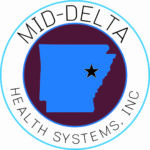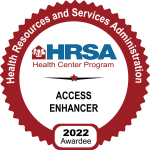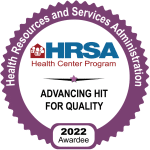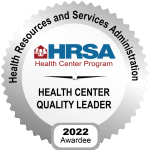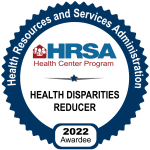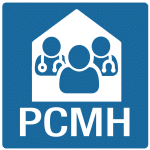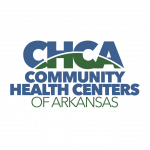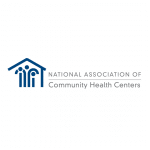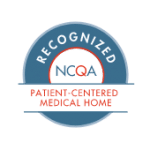Know Your Status. Protect Your Health.
At Mid-Delta Health Systems, we believe that everyone should have access to quality healthcare, including comprehensive HIV testing and prevention services. Our team of compassionate and experienced healthcare professionals is dedicated to providing the care and support you need to stay healthy and protected. Whether you’re seeking HIV testing, PrEP (pre-exposure prophylaxis) medication, or ongoing HIV care, we’re here to help you every step of the way.
What is PrEP?
PrEP is a medicine that reduces your chances of getting HIV from sex or injection drug use. When taken as prescribed, PrEP is 99.9% effective for preventing HIV.
The Care and Support You Deserve
Our HIV testing and prevention services are designed to meet the unique needs of each individual patient. Our team of healthcare professionals is here to provide the support and guidance you need to make informed decisions about your sexual health, including:
- Confidential HIV testing to provide peace of mind and ensure early detection.
- PrEP medication to help prevent HIV transmission and protect your health.
- Ongoing HIV care to manage the virus and ensure optimal health outcomes.
- Personalized treatment and support from a team of experienced healthcare professionals.
- Affordable services that are accessible to everyone, regardless of income or insurance status.
- A judgment-free environment where you can feel comfortable discussing your sexual health needs.
How It Works
At Mid-Delta Health Systems, we strive to make our HIV testing and prevention services as easy and convenient as possible. Here’s what the process looks like:
1
Schedule an appointment:
You can call us or schedule an appointment online for HIV testing or PrEP medication.
2
HIV testing:
You can receive an HIV test in three ways:
- During your appointment (this is the quickest way to get your results).
- By calling ahead and picking one up.
- By calling ahead and requesting an at-home test that’s shipped right to your door.
3
PrEP medication:
If you are interested in PrEP medication, our healthcare professionals will evaluate your eligibility and provide you with a prescription if appropriate.
4
Ongoing care:
If you test positive for HIV, we will provide you with ongoing care to manage the virus and ensure optimal health outcomes.
FAQs About HIV
The only way to know if you have HIV is to get tested. Knowing your HIV status helps you make healthy decisions to prevent getting or transmitting HIV.
Being tested is the only way to confirm if you have HIV. If you think you have been exposed to HIV, you should be tested. You’re at the most significant risk for acquiring HIV if you:
- Share drug needles or syringes.
- Have anal sex without a condom, especially receptive anal intercourse.
- Have sex with an infected person without using a condom.
- Have vaginal or anal sexual contact without using a condom with someone whose HIV status is unknown, especially those who are at high risk for acquiring HIV.
- Have a sexually transmitted infection such as syphilis, genital herpes, chlamydial infection, gonorrhea, and bacterial vaginosis, which appear to increase susceptibility to HIV infection during sex with infected partners.
There is currently no cure for HIV. Once a person is diagnosed with HIV, they have it for life. However, with proper treatment and medical care, HIV can be controlled. People diagnosed with HIV can live long, healthy lives.
Yes, Mid-Delta Health Systems can mail you a Rapid testing kit to your home. A rapid test is done entirely at home or in a private location and can produce results for you in 20 mins.
Today, more tools than ever are available to prevent HIV.
- Choose sex that is less risky than anal or vaginal sex. There is little to no risk of getting HIV through oral sex.
- You can’t get HIV from sexual activities that don’t involve contact with body fluids (semen, vaginal fluid, or blood).
- Latex condoms used consistently and correctly are highly effective in preventing HIV and other sexually transmitted diseases (STDs), like gonorrhea and chlamydia.
- Use water-based or silicone-based lubricants to help prevent condoms from breaking or slipping during sex.
- PrEP is medicine people at risk for HIV take to prevent HIV.
- If taken as prescribed, PrEP is highly effective for preventing HIV from sex.
- Get tested for other STDs. If you have another STD, you are more likely to get HIV. Getting tested and treated for other STDs can lower your chances of getting HIV.
Antibody tests (Rapids – OraQuick, Insti, Chembio) look for antibodies to HIV in your blood or oral fluid. Antibody tests can take 23 to 90 days to detect HIV infection after exposure. Antibody rapid tests process results in 20 minutes or less. Nashville CARES or Nashville CARES My House Clinic currently uses the Insti Rapid HIV Test for diagnosis, and results are available in one minute or less.
Antigen/antibody (4th Generation) looks for HIV antibodies and antigens. Antibody/antigen tests are processed by a lab on blood taken from a vein and can usually detect HIV infection 18 to 45 days after exposure. Your immune system produces antibodies. Antigens are foreign substances that cause your immune system to activate.
If you test positive, this does not mean you have AIDS or that you will develop AIDS. It means you are carrying the virus that can cause AIDS, and you can infect others. You should begin an HIV management plan and take precautions to avoid spreading the virus.
When people with HIV don’t get treatment, they typically progress through three stages. But HIV treatment can slow or prevent the progression of the disease. With advances in HIV treatment, progression to Stage 3 (AIDS) is less common today than in the early years of HIV.
- Stage 1 (Acute HIV Infection)
- People have a large amount of HIV in their blood and are very contagious.
- Many people have flu-like symptoms.
- If you have flu-like symptoms and think you may have been exposed to HIV, get tested.
- Stage 2 (Chronic HIV Infection)
- This stage is also called asymptomatic HIV infection or clinical latency.
- HIV is still active and continues to reproduce in the body.
- People may not have any symptoms or get sick during this phase but can transmit HIV.
- People who take HIV treatment as prescribed may never move into Stage 3 (AIDS).
- Without HIV treatment, this stage may last a decade or longer or may progress faster. At the end of this stage, the amount of HIV in the blood (viral load) goes up, and the person may move into Stage 3 (AIDS).
- Stage 3 (Acquired Immunodeficiency Syndrome (AIDS))
- The most severe stage of HIV infection.
- People with AIDS can have a high viral load and may easily transmit HIV to others.
- People with AIDS have badly damaged immune systems. They can get an increasing number of opportunistic infections or other serious illnesses.
- Without HIV treatment, people with AIDS typically survive about three years.
For many, yes. Most people have flu-like symptoms within 2 to 4 weeks after infection.
- Symptoms may last for a few days or several weeks.
- Having these symptoms alone doesn’t mean you have HIV.
- Other illnesses can cause similar symptoms.
- Some people have no symptoms at all. The only way to know if you have HIV is to get tested.
FAQs about PrEP
PrEP is highly effective in preventing HIV.
- PrEP reduces the risk of getting HIV from sex by about 99% when taken as prescribed.
- Although there is less information about how effective PrEP pills are among people who inject drugs, we know that PrEP pills reduce the risk of getting HIV by at least 74% when taken as prescribed. Currently, PrEP shots are not recommended for people who inject drugs.
- PrEP is less effective when not taken as prescribed.
PrEP is safe, but some people experience side effects like diarrhea, nausea, headache, fatigue, and stomach pain. These side effects usually go away over time.
PrEP pills reach maximum protection from HIV at about seven days of daily use. Learn more at CDC.
PrEP is for anyone who wants added protection against HIV. Your healthcare provider can help you decide if PrEP is a good fit for you.
PrEP is covered by most insurance plans and should be covered by Medicaid and Medicare.
If you do not have insurance, or if you have insurance but need help with out-of-pocket costs, there are financial assistance programs that may be able to help. Many people wind up paying very little or nothing at all for PrEP.
Ready to Take Control of Your Sexual Health?
Schedule your appointment or request at-home testing today! Our compassionate healthcare professionals are here to provide the care and support you need to stay healthy and protected.


